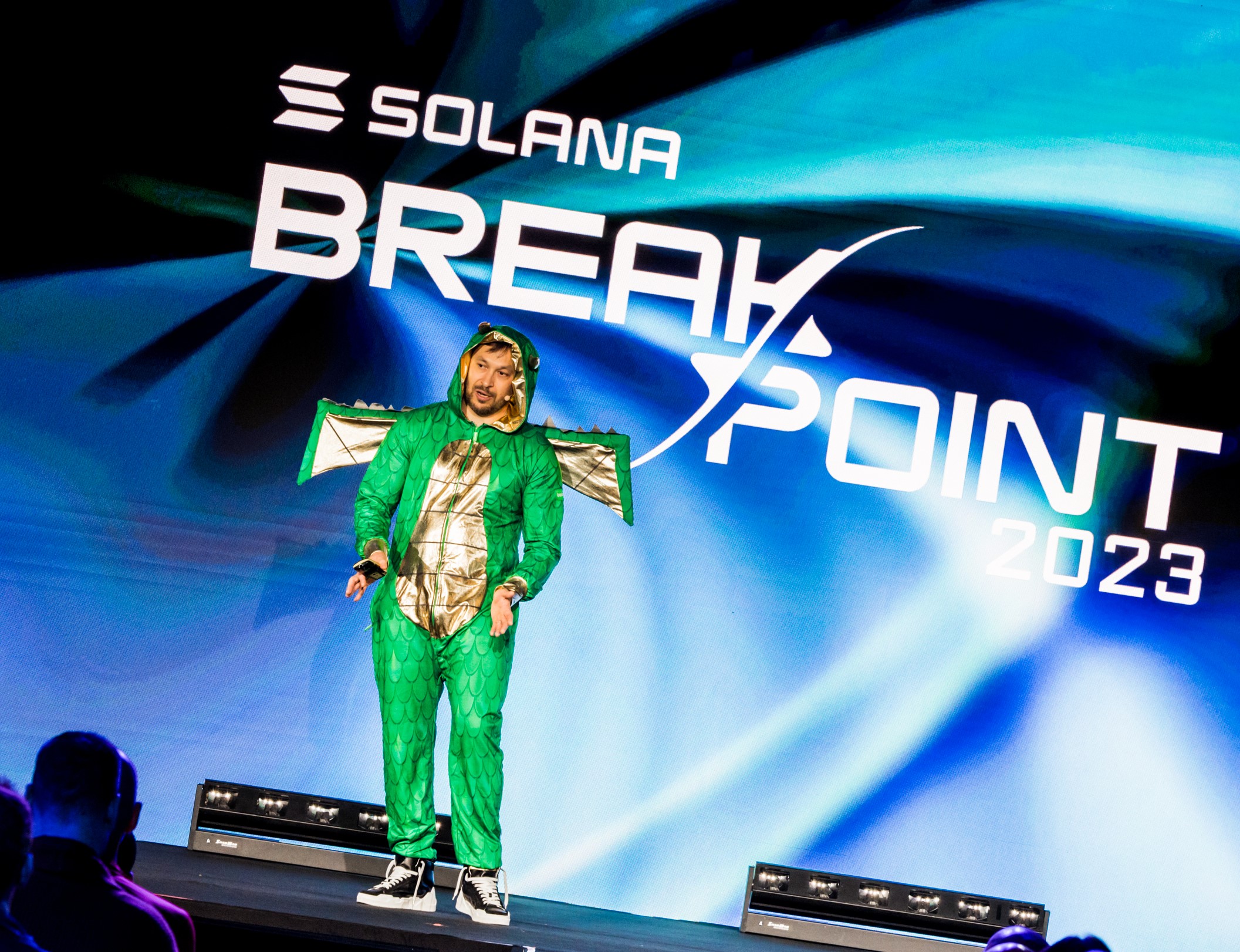“We were worried about startups in the ecosystem”
The infamous collapse of FTX in 2022 caused deep repercussions in the cryptocurrency industry, especially affecting the Solana ecosystem.
Exclusively to Cointelegraph, on the occasion of the latest edition of the Solana Breakpoint conference held in Amsterdam, Solana co-founder and CEO Anatoly Yakovenko recalled his concerns about various projects being built on the layer 1 blockchain smart contract protocol.
“I was more worried about the startup ecosystem; “We didn’t know how exposed the teams were.”Yakovenko explained. Solana’s native token is SOL (LEFT) experienced a significant decline following the failure of FTX: at the beginning of November 2022, the token was trading at $36, and in the days following the stock market crash, it fell to $12.
Related: Sam Bankman-Fried found guilty on all 7 counts
Solana’s research team and several investors contacted hundreds of teams developing decentralized products, services, and applications to assess collateral damage. According to Yakovenko, Approximately 20% of Solana-based projects received investment from FTX or Alameda Researchand only 5% of the startups in the ecosystem had funds invested in the failed exchange.
“That’s what hurts the most. These teams saw their chances evaporate.”
Yakovenko empathized with founders struggling to raise capital and trusted FTX as the custodian of those funds. “You keep them on an exchange that everyone trusts, and suddenly they disappear. That was a catastrophic failure for those companies.”added.
A prime example of this was Armani Ferrante, who raised nearly $20 million to launch Coral, a cryptocurrency infrastructure company based in Solana. The engineer had previously estimated that his company lost about $14.5 million it held in FTX.
“People like Armani worked hard and restarted their companies. They faced failure and managed to redirect their energy into starting over.”
Although Yakovenko said seeing the value of the SOL fallingexposure The fact that some major Solana projects were acquired thanks to various investments led by Sam Bankman-Fried was a hard pill to swallow, pale in comparison to the damage done to ecosystem projects.
“It was heartbreaking. The drop in the price of the token was huge, but that’s how cryptocurrencies are. They move up and down all the time. But people’s options had evaporated… it was really painful. I’m glad most of them made it through. Some of the teams survived.”added the CEO.
As the one-year anniversary of FTX’s collapse approaches, things are starting to calm down. Bankman-Fried’s high-profile criminal trial concluded with the former CEO being found guilty of all seven charges today. Sentencing is expected in March 2024.
As Yakovenko explains, there is a positive development for the Solana ecosystem: Several investors contacted and stated that the influence of FTX is an obstacle to supporting layer 1 of the next generation of smart contracts.
We are sharing a topic written by Chris Burniske in December 2022: “@VitalikButerin recently asked me what I liked about @Solana and I will be publicly sharing an adapted and annotated version of what I told him.”
2/ @VitalikButerin recently he asked me what i like @Solana and so I will share with the public an adapted and serialized version of what I wrote to him.
— Chris Burniske (@cburniske) December 30, 2022
Yakovenko highlighted the influence of Ethereum venture capital investor Chris Burniske in articulating Solana’s value proposition.
“He basically reiterated that it’s time to look at Solana, because this important element that was really bad in terms of decentralization has been eliminated. There are trusted players who are improving their business. His influence has had a huge impact on the ecosystem and in attracting everyone to get back on their feet.”
Translation by Walter Rizzo

